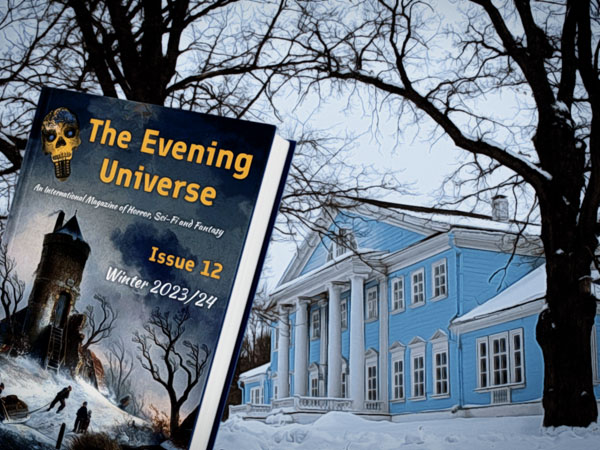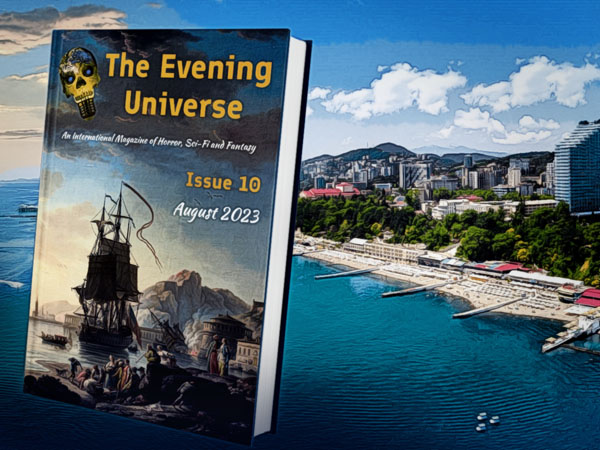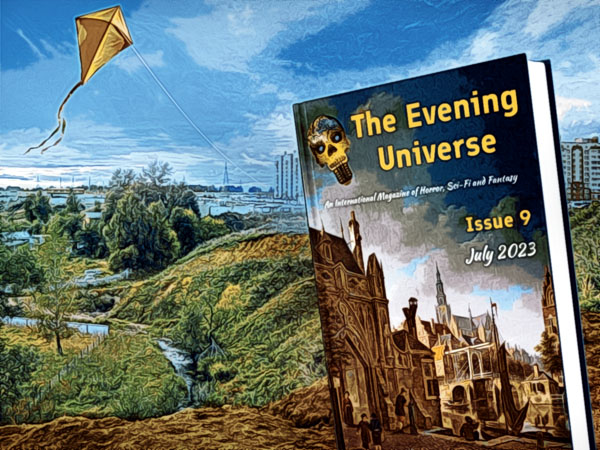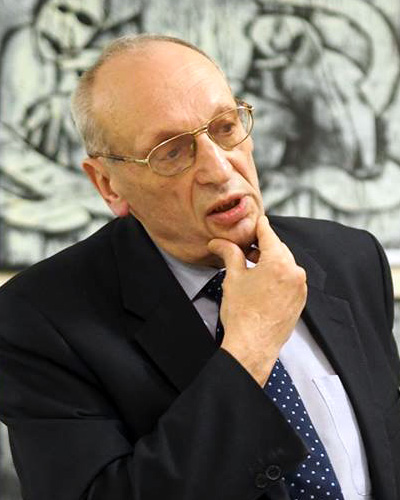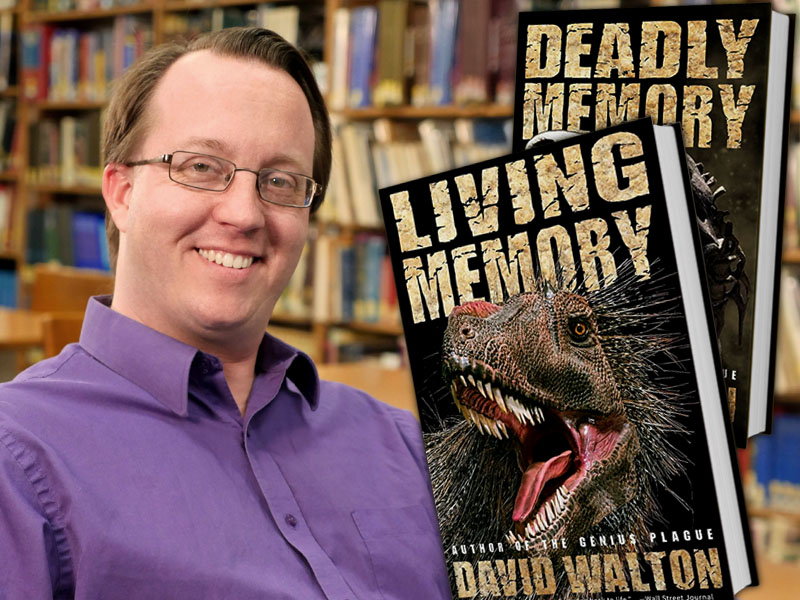
In his dystopian social science fiction novel “Nineteen Eighty-Four,” George Orwell modeled the authoritarian state on Stalinist Russia. I was less than twelve years old when Stalin died, but much of what was described in the novel continued to influence the life of the Soviet Union until the very end of its existence. I would like to tell about that, basing on my own experience from the 1960s and using an excerpt from the book of my fictionalized but truthful memoir “Try living in Russia.”
Of course, the Soviet state is long gone now, but, by some strange set of circumstances, Orwell’s novel has been the very best selling book in Russia over the past dozen years. As far as I know, “Nineteen Eighty-Four” is a bestseller in the modern US as well, and the book topped the Amazon sales charts in 2013 and in 2017. What does this mean? Probably it is better not to think about such questions. Well, let me show how Orwell’s fiction corresponded to the real life of post-Stalin Soviet Russia.
* * *
Big Brother keeps watch. We always feel his watchful eyes. When you said something wrong. Not in keeping with the main direction, so to say…you looked to the corner and whispered, maybe as a joke, maybe because you meant it: “Here comes the tuning call: One, two, three, I love the Soviet authorities[1].” Or perhaps we were no longer interesting to Big Brother? We worked a lot. We also played, as young people do. We weren’t into politics or dissidence. Well, we might have read something for ourselves. You no longer got rapped over the knuckles for that. You’re so wrong, my friend. Big Brother was interested in everyone, he was always with you. In the entire country, in each enterprise, in each sub-section there was an informer, a secret associate, a “sec-ass.” Big Brother’s watchful eye.
We had one in our sector, too. I can even guess who it was. Not just one even. A war veteran, former member of the Soviet counter-intelligence [Smershevtsy], Ivan Ilyich Smershev. An ominous surname and an interesting coincidence. In life he was a nice, kind-hearted middle-aged man. The second was Sasha Strelkov, sorry I don’t remember his patronymic, perhaps he was San Sanich, that is, Alexander Alexandrovich? His surname is also expressive, meaning “rifleman.” Also middle-aged. A huge, corpulent man, like an inflated bubble. They say that during the war he worked in Finland, behind the enemy lines. That he had both his wrists broken during interrogations. Perhaps he was lying in order to look like a hero. Where was that, what kind of interrogations? A waste of space, a nobody, a useless guy. But for some reason they held on to him at work. Both men smiled a lot and appeared kind from the outside. Their work involved the economic side of project implementation and the preparation of pre-production models.
We understood and sensed who represented the eyes of Big Brother. But what was there to fear? We loved our work and weren’t involved in politics. We didn’t discuss anything at work. I had a relaxed attitude towards the issue of informers. I took life easily and almost paid for that.
At home I loved extruding drawings and bas-reliefs from thin metal or foil with. That was my hobby. Extruding, not embossing. A very simple technology. Sasha Strelkov also too an interest in it. We exchanged techniques for applying drawings. Once Strelkov brought a small sheet of beautiful thin brass to work and gave it to me, saying, “Try what you can do on this material.” I didn’t sense the catch. I’ll try at home, I replied. I placed the sheet between the pages of some technical book. At that time I regularly carried reference books, manuals and scientific books from home to work and back. At home I would continue working on issues that had arisen at work. That evening I walked through the entrance checkpoint. The guard asked me to show my books. That had never happened to me before. I gave a start. They leafed through the books but – stroke of luck – they didn’t find the thin sheet of metal. The danger passed. It turned out that Strelkov had taken the metal sheet from our experimental workshop and Smershev had reported it to the checkpoint. They had both wanted to show the results of their “activity.” And I would have committed theft of socialist property. Can you imagine the possible consequences? There you have your kind-hearted guys.
Once, after I had crossed the Tviber pass in the Caucasus with a group of tourists the following story happened. The crossing took place in Mestia, the capital of Svanetia. Everybody relaxed. We spent two days wandering through the beautiful village, studded with ancient Svanskii towers. A young woman from our group got to know a young Georgian soldier. Their story was wholly chaste. They walked back and forth, bought ice cream and nibbled sunflower seeds. The next morning we were due to travel onwards to Zugdidi. The friends of the Georgian boy told him that as the girl had been happy to associate with him she ought to pay in kind. The evening came. The dancefloor on the territory of the tourist camp was the centre of all local life. Somehow the girl managed to let us know that the local boys had surrounded her and wouldn’t let her go. An unpleasant situation that could have ended badly. I had to do something. I managed to free the girl. There was no brawl. The offended soldier had demanded satisfaction. The guys from our groups made an arrangement with the locals to the effect that the fight would be honest, man to man. The young son of the mountains didn’t risk the courageous deed, however he threatened to find us all in Zugdidi. He may have threatened, but we never saw him again. Nevertheless, the story unexpectedly continued in Leningrad.
Our group met in the evening in order to celebrate the successful end of our trip. A young man appeared who introduced himself as a relative of one of the girls in our group. He wouldn’t leave me alone the entire night and tried to make friends. It turned out he was from Big Brother. Big Brother had noticed me. He had taken note of my, so to say “heroism”. He had laid eyes on me. The guy insistently repeated his invitation to come to the gym in the Bolshoi Dom on No 4, Liteiny Prospekt, the KGB headquarters. To practice some boxing. I was practicing sambo and judo at the time; I had never boxed before. Why not? For some reason I never made it to that gym. The guy kept ringing me. Upon finding out that I often travelled to Moscow for work he asked me to take a parcel to Moscow and pass it on to “the right people” when I had the chance. Of course, I’ll take it. No problem. However, I didn’t tell him about my next trip, I didn’t deliver the parcel, I didn’t come to the gym. Somehow I managed to explain it. It just happened like that, sort of. I quietly slipped away. And, idiot that I was, didn’t understand my luck. I could have become a new Richard Sorge or Nikolai Kuznetsov. Or been useful to a very powerful government department in the role of a modest hard worker. On the front where the fighters were invisible. Where you couldn’t make out the victory. And, most importantly, where nobody else knows who “they” are. Because nobody’s supposed to know. And there’s no way to find out where to send the warm socks. These fighters were precisely the men who later became the best plain-clothes leaders.
There is no reason to return to the past. The friendship with Big Brother didn’t work out, and thank goodness for that. But if Big Brother knows everything, why does he always keep near you?
Somehow Igorek, by all accounts the most handsome man in our group and previously my fellow student, managed to introduce to us three charming French people from Paris, one young man and two girls. Igor and I were working at a secret enterprise, “Granite”, at that time. We were considered privy to state secrets and therefore not allowed to leave the country. The French people were our age, students at a department of Slavonic languages. They had come for an internship at Leningrad University and became part of our group of friends easily. They spent their free time with us: exchanged news, went out, attended exhibitions, visited our magnificent suburbs. The French had a funny accent that we loved to make fun of. In a friendly way, of course. The most important thing was that they were open to everything you could see and find out in our country. They were interested in everything. And we became fond of them very quickly. Igor was invited to Section Number One[2] for a chat. “You’ve signed a non-disclosure contract”, they told him. “And I’m not disclosing anything.” “Then why are you meeting with foreigners?” “Where is it written that that’s forbidden?” “Listen, you have a perfect biography. Your father is a faultless officer. Your sister is tried and tested and we’ve allowed her to work with foreigners. You’re not some kind of cosmopolitan after all. Do you like your work? What do you need the French guys for?” Igor had to stop meeting our French friends. I have no idea how he explained it to them. And what the kind French people felt when they heard it? For some time I exchanged letters with the Parisians. Not for long. I stopped soon. I didn’t want to wait for a chat with Big Brother. So I stopped replying to their postcards. I was very ashamed. But how could I explain this? Well, the grown-ups told me not to, or what? I couldn’t tell about my secret job either.
I remember the following incident. I absolutely had to show the manuscript of my dissertation to my supervisor. We arranged to meet in a different area of the institute. The dissertation was considered secret, although it didn’t contain any secret information. It was simply that all documentation within the institute had to pass Section Number One. The dissertation, written by my own hand, was kept in a secret briefcase and was sealed with a special seal and a plastic blob. Usually the documents were passed from one area to another in a special bus. But this time there was no bus. I was told “Go deliver the briefcase yourself. Afterwards hand it in to Section Number One.” I did as I was told. I went to the agreed place, got the manuscript our and had my meeting with my supervisor. Only after that did I take the briefcase to Section Number One.
The clerk at Section Number One went into shock. The plastic seal was broken. During the transfer of the briefcase the secret documentation could have been read or even taken away. It turned out that I should have first presented the sealed briefcase to the clerk of Section Number One, for her to open it with her own hands, and only then take the manuscript. A real scandal! The top brass congregated. I explained: “But there is nothing secret in it. Anyway I know every letter of the manuscript by heart. But no one has given me any instructions!” That last argument saved me. But the pressure was immense. The high-handed women directors very much wanted to scare me. When that attempt was unsuccessful, they started “heart-to-heart talks”. “What’s your situation like there?” “In what sense?” “Well, is anyone leading incorrect conversations with you?” “But no, everyone working here is so correct. They only lead correct conversations.” “Is there anyone who behaves immorally?” “But no, everyone working there has very high morals. Nobody smokes or drinks.” “But when something like that happens?” “When what happens?” “Well, when someone behaves immorally, will you tell us?” “Well, of course, you can be sure that I will definitely tell you. But it’s unlikely that something of that kind will happen. Everybody working there has high morals and doesn’t lead harmful conversations.” They finally got it that I was making fun of them. They got angry – they’d been trying to propose collaboration to this useless guy, me, and I’d been pulling the leg of the silly woman who did so. They warned me that in the future…But I was never punished. For this time the danger passed me by. But Big Brother so much wanted to come down hard on everybody he’d not yet managed to get. While anybody was free to join the ranks of the Smershevs and Strelkovs, the invisible fighters on the invisible front, in simple language sec-asses.
There was a period where Zhanna, my first wife, and I lived in a rented two-room flat. The owners where on a long trip making money in the North. All their possessions were locked into one of the rooms. So we were factually renting a one-room flat. One fine day a young man appeared. He opened the door to the flat and then the one to the locked room with his own keys. I am the landlady’s brother. A most charming guy. Everybody’s best friend. He had come on an assignment. We understood he’d been sent by Big Brother. I’ll live with you for a while. Oh great, a communal flat is just what we’ve been waiting for. We had to put up with him. He walked around, hung out with us. He watched TV in our room. He rifled through all books and papers and through my work papers. He chased after Zhanna when I wasn’t there. Zhanna didn’t mince her words and told him where to get off “Now get your lardy arse out of here, you’ve already stained all our armchairs with grease.” A few weeks went by. The landlady’s brother disappeared just as suddenly as he’d appeared. He had evidently fulfilled his mission. The mission, of course, had nothing to do with us. But we’d been checked out, just in case. So that we didn’t get haughty. Well, there was nowhere for us to hide from Big Brother. It would be interesting to know whether the “landlady’s brother” reported to Big Brother how he got it when we decided to have a little friendly boxing match with him?
I’ve already told you that in the 1960s I had to say goodbye to a good friend. That he would go abroad was a decision taken under duress in many respects. His parents had taken his little sister and emigrated to the United States. He had a wife and a small child. He didn’t plan to leave the country. But after his relatives had left he was fired from his work. He didn’t manage to find a new workplace and got by doing odd jobs. He cut ties with his friend so as not to direct Big Brother’s wrath towards them. Then he filed for emigration, he simply had to. They didn’t allow him to go to the States. “Why do you want to go to the States? Go to Israel. That’s the place for you. You want to be reunited with your family? Stop kidding us, that’s not your family. You already have a family. We’ll only grant permission for emigration to Israel. Why do I need to explain you anything? There are considerations of the highest expediency.” With great difficulty and by going through Moscow my friend managed to obtain permission to emigrate to the States. He left his home country with a heavy heart. We, his friends, didn’t go to see him off. He didn’t want us to. He didn’t want us to get into trouble because of him.
How good that Big Brother doesn’t let us out of his sight even for a minute. All our life he’s breathing down our neck. Takes care of us, helps and advises us. So that we, unreasonable children that we are, don’t commit follies. So that we don’t do stupid things because our minds are feeble. You’ll regret it, just that by then it’ll be too late, he seems to be telling us. His grip doesn’t weaken for a second. All about us is written down in the right place. Every step is known.
When in our time you go to sign a credit agreement with your enterprise in our time, the bank manager is always accompanied by a grey mouse – the deputy for security. “We know everything about you, Aleksandr Yakovlevich. The security services have some very serious questions for you. You are in real trouble.” “What questions, where? I don’t know anything.” “How do you not know anything? Did your company rent summer houses for your employees in Komarovo? And who threw the Heroes of the Soviet Union out of their dachas, threw them into the snow, beat them up until they were bleeding?” “Such a thing never happened.” “And what did the newspaper “Kurortnaya Pravda” write ten years ago?” “That’s not true, nothing of that sort ever happened. It was simply that someone took a liking to our dachas. We sued the newspaper for libel. The paper paid a fine and retracted the statement in writing.” “I don’t know, I don’t know. And twenty years ago your son threw a concrete slab at an old lady, what do you say now?” “Listen, my son was eight years old then, how could he have thrown a concrete slab?” And so on in the same vein. “O, don’t worry, Alexander Yakovlevich, we hold nothing against you. We’ll give you the credit.” Until the present day bank managers kowtow to their deputies for security and wait for their permission. These people look quiet and meek, but when necessary they are insolent and shameless. And rightly so. Big Brother thinks about every one of us. That’s what we respect him for. And why we love him with our whole heart.
Many key economic positions in contemporary Russia are occupied by Big Brother’s people. They are educated, intelligent and respectable. I’m personally grateful to Big Brother for all the things he’s doing for us. And for those he’s going to do in the future. While Big Brother is with us, the country can expect order, stability and prosperity.
1. A reference to the fact that in many rooms the KGB had installed hidden recording devices.
2. In defence-relevant Scientific Research Institutes, Section Number One was responsible for maintaining standards of confidentiality. Secret documents were returned to this Section after work and held there.

